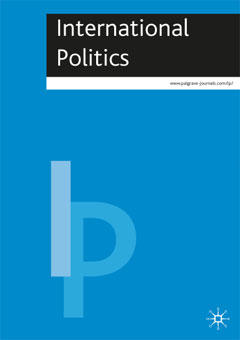Ideas, Discourse, Power, and the End of the Cold War: 20 Years on
Thomas Risse – 2011
Reagan's rhetoric and actions in the arms race triggered considerable opposition, which was necessary to establish a counter-discourse in particular through the peace movements in the West, which then impacted upon the discussions in Moscow. It enabled Gorbachev to overcome his considerable domestic opposition and to make the necessary concessions, which started to bring the cold war to an end. In this sense, the peace movements won the cold war, too. The end of the cold war was as much a discursive struggle over ideas about international order and the right mix of deterrence and détente as the East–West conflict itself. It is a matter of good fortune that the cold war had a relatively happy ending and that Europe was reunited. Claiming victory for one side or the other seems to be beside the point, even 20 years later.

